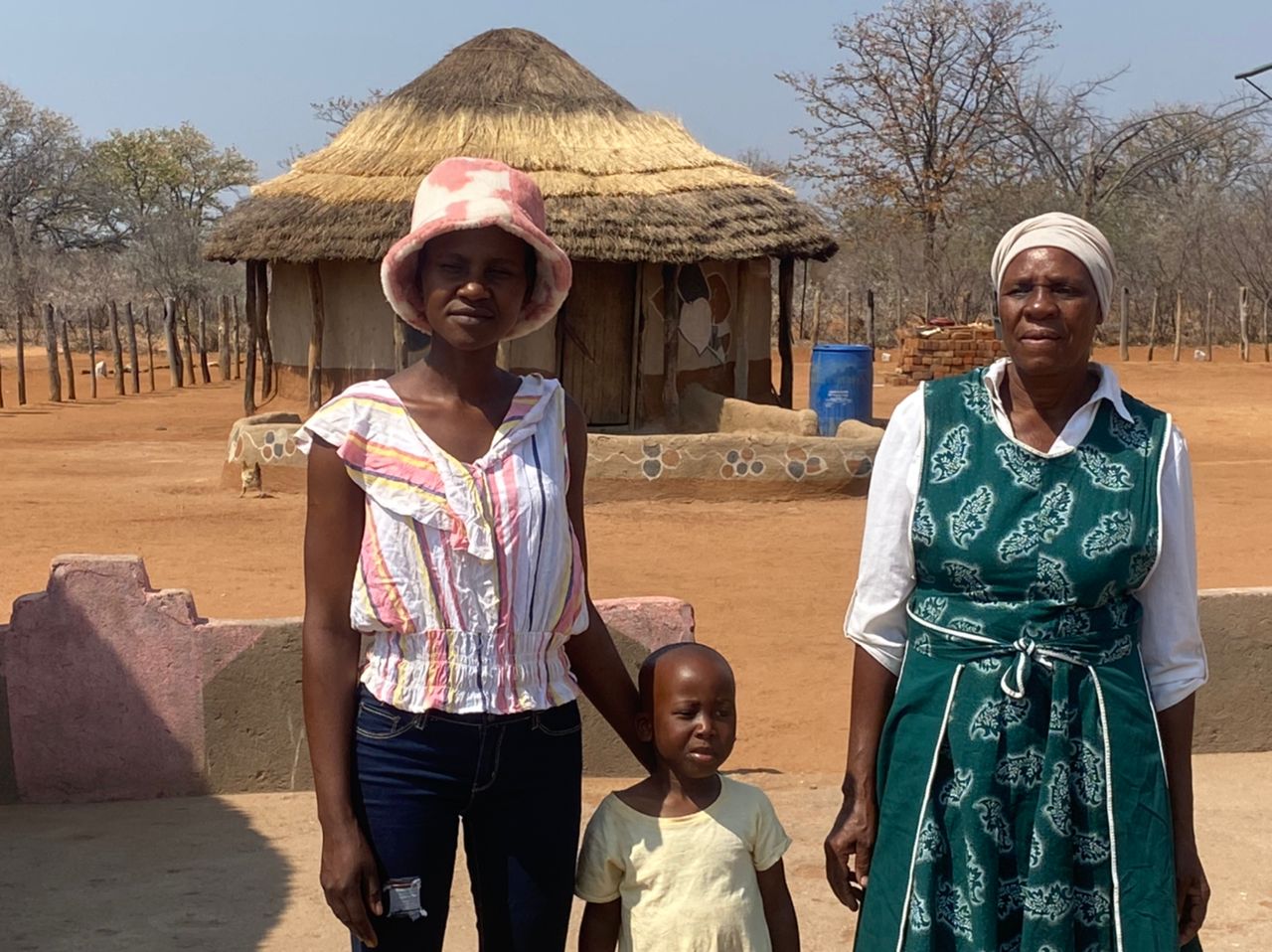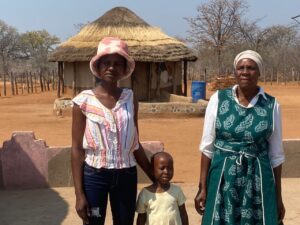
(Right side: Viola Nyoni ,with daughter and granddaughter).
Meet Viola Nyoni, a 63-year-old widow from Bethel Village in Ward 14 Gwanda, a member of the Progressive Garden.
Viola has faced numerous challenges since the death of her husband in 2006. Society alienated her because she was unable to support her six children and three grandchildren. Life was far from rosy for Viola until she came across Hand in Hand Zimbabwe who birthed hope for her and her dependents.
Viola and her family used to fetch water from the shallow wells that could hardly give them approximately 10 liters for watering their garden and in dry seasons water would be little or dry up. She had to fetch water with buckets and walk while carrying buckets for a distance of 300 meters, then water her garden, something which was tiring for her. The situation limited her to farming a small piece of land hence she got few vegetables to sell and sustain their needs.
“l used to experience difficulties in providing water for household use and gardening. We would walk 300 meters to fetch water from a shallow well right across another village and wait 2 hours for our turn. In 2022, l was fortunate to join the Progressive Self-Help Group, an organized group focusing on promoting the production, processing, and marketing of horticultural vegetables such as leafy greens, cabbages, tomatoes, onions, paprika, and fruits such as paw paws and bananas, she said.
“Under this group, l have been able to grow my vegetables, tomatoes, and onions. I am witnessing growth in my income, and this is because l can now grow at a larger scale.
Again, with access to water from a borehole constructed for the project, l am now able to water my plants at any given time. On a weekly basis, l harvest a 40 liter bucket full of tomatoes and sell it at USD12 or possibly exchange it for livestock. I recently exchanged four, 20-liter bucket full of tomatoes for seven indigenous chickens, said Viola.
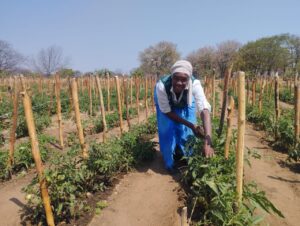
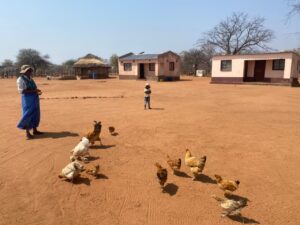
(From the Left: she poses in her tomatoe garden, while on the right she feeds her chickens).
The training and support provided by the Hovaweep Project arrived at just the right time for Viola. The project not only offered financial assistance but also imparted valuable skills and knowledge that empowered Viola to become self-sufficient. Through their guidance, she learned how to cultivate a garden, grow nutritious crops and how to record keep after making sells.
With newfound confidence and determination, Viola transformed a small piece of land into a thriving garden. The surplus produce not only fed her family but also generated income when sold at the local market. Through her horticulture gardening, she has been able to purchase three goats.
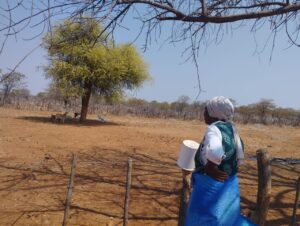
(Viola watches her herd of goats from afar under the tree).
The impact of the Hovaweep Project extended beyond Viola’s immediate family. Her success inspired other women in Bethel Village to join Progressive Garden, a community initiative aimed at improving livelihoods through agriculture. Together, they formed a strong support network where they shared resources, ideas, and experiences.
Viola’s story is an inspiring testament to the transformative power of empowerment programs like the Hovaweep Project. It demonstrates that with proper training and support, individuals can overcome adversity and create sustainable change in their lives. Through her hard work and resilience, Viola has not only improved her own circumstances but has also become an agent of change within her community.

